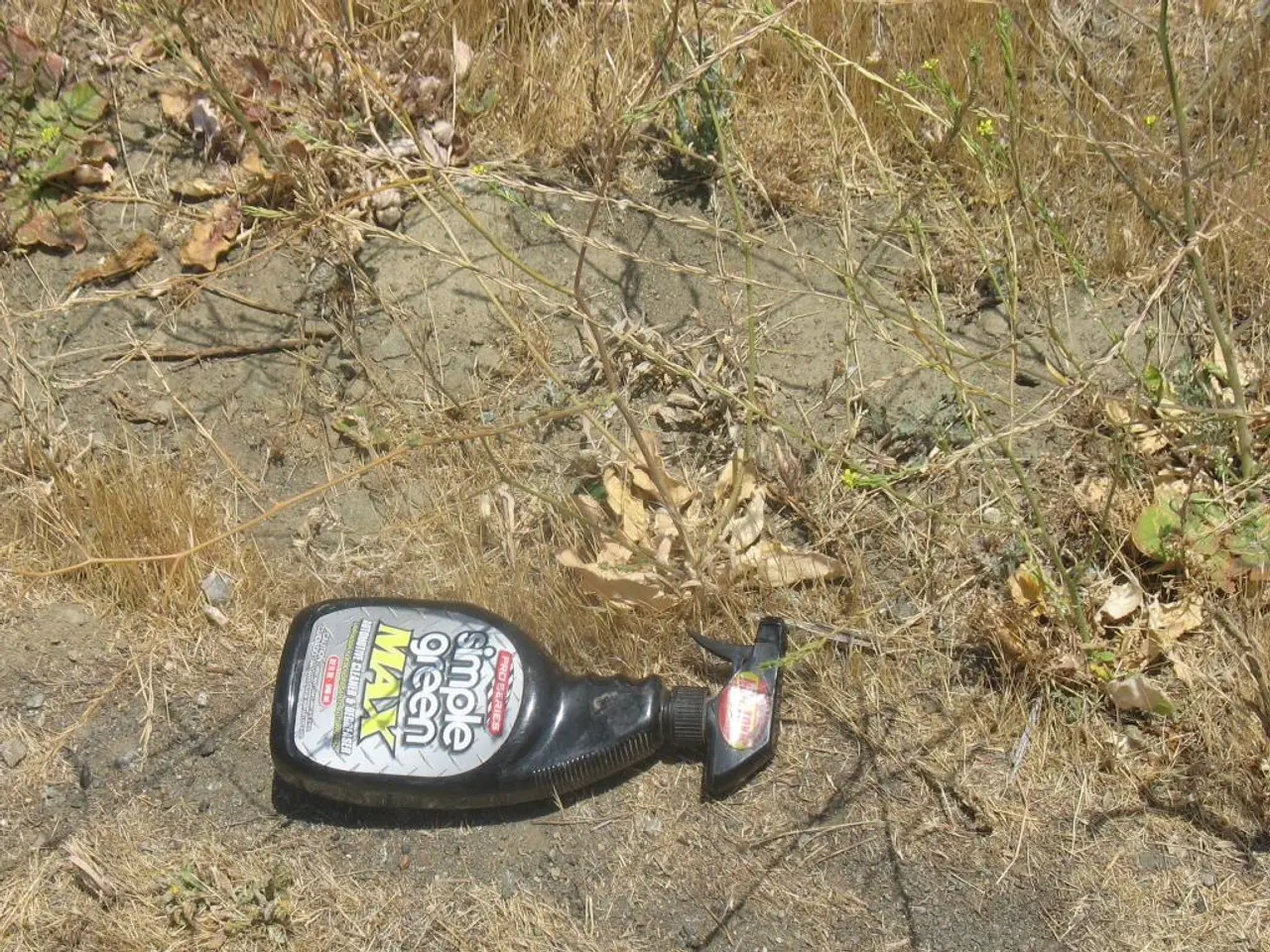Utilizing Neem Oil in Gardening: Three Excellent Applications as a Garden Ally, Emergency Plant Savior, and Pest Destroyer - Revealing Why Neem Works for Ideal Plant Care!
In the world of organic gardening, neem oil has emerged as a versatile and eco-friendly solution for pest and fungal control. Derived from the neem tree (Azadirachta indica), this naturally occurring agent is gaining popularity among gardeners for its broad-spectrum effectiveness and relative safety for humans, pets, and other animals.
Neem oil works primarily by interfering with insect development and feeding, and by acting as a barrier to fungal spore spread. The active compound, azadirachtin, disrupts insect growth, feeding, and reproduction, making insects suffocate or stop feeding after exposure. When applied as a diluted spray on plants, it smothers soft-bodied pests like aphids and larvae, and repels certain insects. It also forms a protective barrier that prevents fungal spores from spreading to healthy plant tissues, although it does not cure already infected plant parts.
One of the key advantages of neem oil is its multiple mechanisms of action on insects, reducing the risk of resistance development compared to synthetic insecticides that target single physiological pathways. It also breaks down quickly in sunlight and soil, avoiding long-term environmental residues, but requires repeated applications for best results.
However, it's essential to dilute neem oil to avoid phytotoxicity (leaf burn), especially avoiding spraying in direct sunlight or high heat. Spraying early morning or late evening is recommended. It's also important to note that neem oil can harm beneficial insects like bees and lady beetles if they come into direct contact with fresh residues, so timing applications to minimize non-target effects is advised.
Neem oil can be used to target a variety of pests such as aphids, beetles, whiteflies, fruitflies, leafminers, cabbage loopers, mealybugs, thrips, spider mites, and Japanese beetles. It can also be used to combat fungal diseases such as powdery mildew, fire blight, verticillium wilt, black spot, leaf spot, anthracnose, rust, and even mosquitoes.
A homemade neem oil spray can be easily prepared using cold pressed neem oil, pure liquid soap, and warm water, following the 'Neem Oil Garden Buddy' insecticide spray recipe. During the growing season, neem oil should be applied every 7-10 days for best results.
While neem oil is safe to use around the garden and can be deployed on the leaves of many crops safely as long as it is diluted, it's important to remember that it's a tool that requires a patient, steady approach and weekly repeat applications for maximum effectiveness. It can be used as an insect repellent to deter certain pests from treated leaves, and even on lawns and as a soil amendment.
In summary, neem oil functions biologically by inhibiting insect growth and feeding and physically by smothering pests and preventing fungal spore spread, making it a versatile, eco-friendly, and organic-compatible pest and fungal control agent in gardening.
Cooking with neem oil could be an innovative addition to a fusion cuisine lifestyle, offering a unique flavor profile and potential health benefits due to its high antioxidant content. In the realm of fashion-and-beauty, neem oil has been used traditionally for centuries in skincare products for its anti-inflammatory and antibacterial properties.
As the popularity of organic gardening and food-and-drink continues to grow, home-and-garden enthusiasts may find usefulness in employing neem oil as a natural pest control method in their kitchen gardens. With diverse recipes for making homemade neem oil sprays, gardeners can cultivate healthier plants and reduce their reliance on synthetic pesticides.
Long-term practitioners of organic gardening might find it intriguing to explore the culinary and cosmetic applications of neem oil, expanding their interests beyond the garden and into the kitchen and bathroom. With its eco-friendly qualities and versatile properties, neem oil could become an exciting new ingredient in organic cooking, skincare, and even home-made natural pesticides.








